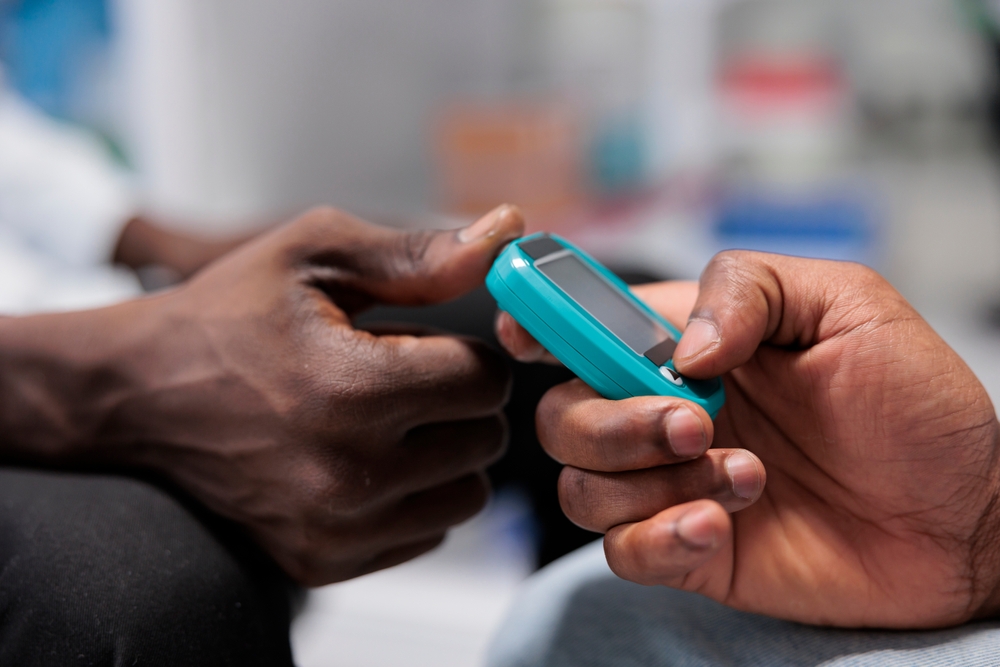For the millions of Americans living with diabetes, the decision to enjoy a glass of wine with dinner or celebrate with champagne isn’t as simple as it might seem. While having diabetes doesn’t mean never drinking alcohol again, it does require careful consideration and planning to stay safe while socializing.
The hidden ways alcohol affects your blood sugar
What many people don’t realize is that alcohol can be particularly tricky for those managing diabetes. Your liver, which typically acts as your body’s blood sugar guardian, has to shift its priorities when alcohol enters your system. Instead of focusing on maintaining steady blood sugar levels, it becomes preoccupied with processing the alcohol, leaving blood sugar levels vulnerable to dangerous fluctuations.
Your body’s sugar balancing act
Understanding what happens in your body when you drink alcohol with diabetes starts with knowing how blood sugar regulation typically works. Think of your pancreas as a sophisticated control center, releasing insulin to help cells absorb glucose from your bloodstream. For people with diabetes, this system already faces challenges, and adding alcohol to the mix can make this delicate balance even more complex.
The unpredictable sugar roller coaster
Alcohol can send your blood sugar levels on an unexpected journey. For some people, a few drinks might cause blood sugar to spike unexpectedly, while others might experience a dangerous drop, especially when drinking on an empty stomach. This unpredictability makes it particularly challenging for those taking insulin or diabetes medications to maintain stable blood sugar levels.
Why weight matters
Calories from alcohol can add up quickly, posing an additional challenge for people managing diabetes. Many alcoholic beverages contain hidden sugars and carbohydrates that can impact both blood sugar levels and weight management efforts. A single margarita, for instance, might contain as many calories as a full meal, making it harder to maintain the healthy weight that’s often crucial for diabetes management.
The medication mix-up risk
Perhaps one of the most serious concerns comes from how alcohol interacts with diabetes medications. These interactions can throw off carefully planned treatment routines and lead to unexpected blood sugar fluctuations. Some diabetes medications combined with alcohol can even cause uncomfortable side effects like flushing, nausea, or rapid heartbeat.
Safe drinking strategies that actually work
Despite these challenges, many people with diabetes can still enjoy alcohol in moderation by following smart strategies. The key lies in preparation and knowing your personal limits. Before any social occasion involving alcohol, eating a proper meal can help stabilize blood sugar levels and slow alcohol absorption.
The timing trick
When you choose to drink matters almost as much as what you drink. Having alcohol with a meal, rather than on an empty stomach, can help your body process it more effectively. This approach helps prevent sudden drops in blood sugar and gives you better control over how alcohol affects your system.
Choosing the right drinks
Not all alcoholic beverages are created equal when it comes to diabetes management. Dry wines, light beers, and spirits mixed with sugar-free beverages tend to have less impact on blood sugar levels than sweet wines, regular beers, or cocktails made with sugary mixers. Learning to navigate drink choices can make a significant difference in blood sugar management.
The morning-after effect
Many people don’t realize that alcohol’s effects on blood sugar can last well into the next day. Even after the alcohol has been processed by your body, blood sugar levels might remain unstable for up to 24 hours. This delayed effect means being extra vigilant with monitoring and possibly adjusting medication schedules under medical supervision.
Creating your personal safety plan
Success in managing alcohol with diabetes often comes down to having a solid plan in place. This includes knowing your limits, carrying glucose tablets or quick-acting sugar sources, and wearing medical identification that indicates you have diabetes. It’s also crucial to ensure that friends or family members know about your condition and can recognize signs of low blood sugar.
The conversation with your healthcare provider
Speaking with your healthcare provider about alcohol consumption isn’t just a good idea—it’s essential. They can offer personalized advice based on your specific situation, including your type of diabetes, medications, overall health, and lifestyle factors. This conversation can help you develop a realistic plan for including alcohol in your life safely.
Understanding emergency situations
Recognizing when alcohol consumption has created a dangerous situation is crucial. Low blood sugar symptoms can mimic intoxication, making it difficult for others to recognize a medical emergency. Learning to identify these situations and knowing when to seek help can literally save lives.
The social aspect
Managing diabetes doesn’t mean missing out on social occasions where alcohol is present. With proper planning, you can participate in celebrations and social gatherings while keeping your health in check. This might mean volunteering to be the designated driver, choosing mocktails, or simply being selective about when and how much you drink.
Looking ahead
Living with diabetes requires constant awareness and adaptation, but it shouldn’t mean living in fear of social situations involving alcohol. By understanding the risks, planning ahead, and making informed choices, you can maintain your health while still enjoying social occasions. The key is finding the right balance that works for your specific situation.
Making informed choices
Remember that every person with diabetes responds differently to alcohol. What works for one person might not work for another. Pay attention to how your body reacts to different types of alcohol and situations, and use that information to make better decisions about drinking in the future.
Your relationship with alcohol when you have diabetes is uniquely personal. While some people might choose to avoid alcohol altogether, others might find they can include it in their lives with proper planning and precautions. Whatever you decide, the most important thing is making informed choices that prioritize your health and well-being.
















